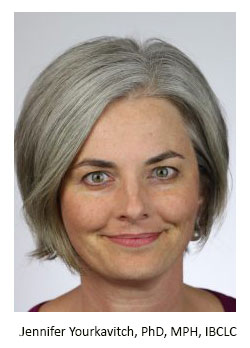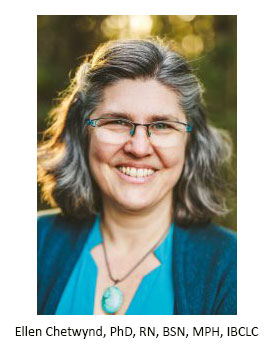General
Empower parents, enable breastfeeding
Today’s guest bloggers are Jennifer Yourkavitch, MPH, PhD and Dr. Ellen Chetwynd, RN, BSN, MPH, PhD, International Board-Certified Lactation Consultants and breastfeeding researchers based at the University of North Carolina, Greensboro. They close out National Breastfeeding Month with their thoughts on empowering women to achieve breastfeeding.
 Throughout August, governments, communities, advocates and families have been celebrating National Breastfeeding Month. Scientists and others may argue about the magnitude of breastfeeding’s positive effects on women’s and children’s health, but the fact that there is a positive effect is unquestionable.
Throughout August, governments, communities, advocates and families have been celebrating National Breastfeeding Month. Scientists and others may argue about the magnitude of breastfeeding’s positive effects on women’s and children’s health, but the fact that there is a positive effect is unquestionable.
What is questionable is the ability of our health care system to support women who want to breastfeed. While the American Academy of Pediatrics recommends exclusive breastfeeding for about six months, and continued breastfeeding for the first year or longer, only 25% of U.S. women breastfeed exclusively for six months and 40% breastfeed for 12 months, according to the Centers for Disease Control and Prevention.
 We who work in health care put forward recommendations for breastfeeding but fail to provide the support women need to achieve them. Women who breastfeed receive inadequate care in a health care system that devalues providers of lactation-specific care and insufficiently trains primary care providers in breastfeeding support.
We who work in health care put forward recommendations for breastfeeding but fail to provide the support women need to achieve them. Women who breastfeed receive inadequate care in a health care system that devalues providers of lactation-specific care and insufficiently trains primary care providers in breastfeeding support.
Primary care providers, who see women and children in the postpartum period — obstetricians/gynecologists, pediatricians, nurse practitioners — receive limited training in lactation and breastfeeding support. In the current health care system, lactation-specific providers, such as International Board-Certified Lactation Consultants, or IBCLCs, have the skills needed to assist women with routine and problematic aspects of lactation and breastfeeding.
However, they are often inaccessible to women because of location, inconsistent insurance reimbursement or poor or nonexistent referral pathways. This can leave families trapped in a system that blocks access to appropriate care, while subjecting them to incorrect information provided by trusted but untrained clinicians. Although the U.S. has more IBCLCs than many countries — 17,389 IBCLCs in 2016 — these are unequally distributed, with 0.48 IBCLCs per 1,000 live births in Puerto Rico to 13.72 in Vermont.
Empowering parents to enable breastfeeding requires consistent access to skilled lactation and breastfeeding support. What can you do to help?
- First, be a resource. Become familiar with local services so that you can refer friends and family in need. While there are likely several local peer-support groups online, skilled support from IBCLCs may be harder to find. The International Lactation Consultant Association maintains a list of members with the option to enter an address to find one near you. In addition, WIC offices provide lactation support for mothers who qualify for those services and have lactation consultants either on staff or listed among its resources.
- Second, be an advocate. Promote the importance of access to skilled support for lactation and breastfeeding. Ask your congressperson to support breastfeeding-friendly legislation, including the Family Act.
- Third, encourage someone to become an IBCLC. There are three pathways, and one doesn’t need to be a clinician to become an IBCLC. Find more information at https://iblce.org/.
- And finally, be a discerning consumer of breastfeeding information. There is a lot out there and it can be difficult to determine what is credible. Consider if the information is based on scientific evidence or if it is provided by a commercial interest with a product to sell. Take a look at the qualifications of the authors. Seek information from more than one source for comparison.
Bottom line: Access to skilled support for lactation and breastfeeding is a basic health right that has been undervalued for too long. It’s time to stop settling for less.


